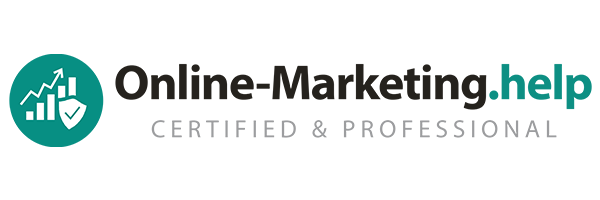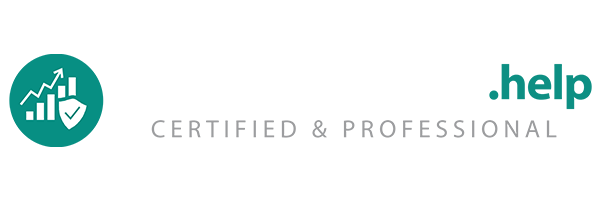Event Promotion can be a daunting task, but with the right strategies and tools, it can become a powerful way to engage with your audience, build brand awareness, and drive significant attendance. Whether you’re planning a small local gathering or a large international conference, effective event promotion is essential to ensure your event’s success. In this guide, we’ll explore the key strategies for promoting events, from leveraging digital marketing tools to engaging your audience through various channels.
Understanding Event Promotion
Event promotion involves the activities and tactics used to generate awareness, interest, (pre)ticket sales and attendance for an event. It encompasses a range of marketing and communication strategies designed to reach the target audience and motivate them to register or attend. Successful event promotion requires a mix of traditional and digital marketing techniques tailored to the specific event and audience.
Pre-Event Promotion strategies
1. Define Your Goals and Audience
Before diving into promotional activities, it’s crucial to define your event goals and understand your target audience. Ask yourself:
What is the primary purpose of the event (e.g., networking, education, fundraising)?
Who is the target audience (e.g., industry professionals, local community, specific age group)?
Understanding your goals and audience will guide your promotional efforts and ensure you use the most effective channels and messages.
2. Create a Compelling Event Page
Your event page is the central hub for all information related to the event. It should be visually appealing, easy to navigate, and provide all necessary details, including:
Event name and description
Date, time, and location
Agenda or schedule
Speaker bios and session details
Registration information and links
Contact information for inquiries
3. Leverage Social Media
Social media platforms are powerful tools for event promotion. Use them to create buzz and engage with your audience:
Facebook: Create a Facebook Event, share updates, and encourage attendees to invite their friends.
Twitter: Use a unique event hashtag, tweet updates, and engage with followers.
Instagram: Share visually appealing images and videos, use Stories and IGTV to highlight key aspects of the event.
LinkedIn: Share professional updates, post articles, and engage with industry groups.
4. Utilize E-mail Marketing
E-mail marketing is one of the most effective channels for event promotion. Build an e-mail list of potential attendees and send targeted e-mails that include:
Save-the-date announcements
Event invitations
Speaker and session highlights
Early bird registration reminders
Regular updates and countdowns
Personalize your e-mails and segment your audience to increase engagement and conversion rates.
5. Collaborate with Influencers and Partners
Partnering with influencers, industry leaders, and relevant organizations can significantly amplify your event promotion efforts:
Identify influencers and thought leaders in your industry who can help promote your event.
Offer them incentives such as free tickets, speaking opportunities, or exclusive content.
Collaborate with partners who can promote the event to their audience through co-branded materials and joint marketing efforts.
6. Utilize Content Marketing
Content marketing is an excellent way to generate interest and provide value to your audience before the event:
Blog Posts: Write articles about the event’s topics, speakers, and key benefits.
Guest Posts: Collaborate with industry blogs to publish guest posts about your event.
Podcasts and Webinars: Host pre-event webinars or podcasts featuring event speakers or topics.
7. Implement SEO Strategies
Search engine optimization (SEO) can drive organic traffic to your event page:
Keywords: Identify and use relevant keywords related to your event throughout your website and content.
Meta Descriptions: Write compelling meta descriptions for your event pages.
Backlinks: Secure backlinks from reputable sites to improve your event page’s search ranking.
8. Utilize Paid Advertising
Investing in paid advertising can help reach a broader audience and drive more registrations:
Google Ads: Use Google Ads to target keywords related to your event.
Social Media Ads: Create targeted ads on Facebook, Instagram, LinkedIn, and Twitter.
Retargeting: Use retargeting ads to reach people who have visited your event page but haven’t registered.
During the Event
1. Live Social Media Updates
Engage your audience in real-time by sharing live updates on social media:
Post live tweets, photos, and videos.
Use your event hashtag consistently.
Encourage attendees to share their experiences and tag your event.
2. Live Streaming
Consider live streaming parts of your event to reach a wider audience:
Use platforms like Facebook Live, Instagram Live, or YouTube Live.
Promote the live stream in advance to maximize viewership.
Engage with your virtual audience by responding to comments and questions in real-time.
3. E-mail and App Notifications
Keep your attendees informed and engaged with timely updates:
Send e-mails with important announcements and reminders.
Use push notifications through your event app to share real-time updates.
Post-Event Promotion
1. Share Event Recaps
Extend the life of your event by sharing recaps and highlights:
Write blog posts summarizing key sessions and takeaways.
Share photo albums and video highlights on social media.
Create a highlight reel or after-movie to capture the event’s essence.
2. Gather and Share Testimonials
Collect testimonials from attendees, speakers, and sponsors to build credibility and attract future attendees:
Conduct post-event surveys to gather feedback.
Share positive testimonials on your website and social media.
3. Follow Up with Attendees
Maintain engagement with attendees after the event:
Send thank-you e-mails expressing appreciation for their participation.
Provide links to session recordings, presentation slides, and additional resources.
Encourage attendees to stay connected through your newsletter or social media channels.
4. Analyze Performance
Evaluate the success of your event promotion efforts to identify areas for improvement:
Track metrics such as registration numbers, attendance rates, and engagement levels.
Analyze the performance of different marketing channels and tactics.
Use the insights to refine your strategy for future events.
Tools for Event Promotion
Several tools can help streamline and enhance your event promotion efforts:
Event Management Platforms: Tools like Eventbrite, Cvent, and Bizzabo offer comprehensive solutions for event planning, promotion, and management.
E-mail Marketing Services: Platforms like Mailchimp, Constant Contact, and Sendinblue can help you design, send, and track e-mail campaigns.
Social Media Management Tools: Tools like Hootsuite, Buffer, and Sprout Social allow you to schedule and manage social media posts across multiple platforms.
SEO Tools: Use tools like Google Analytics, SEMrush, and Ahrefs to optimize your event pages for search engines.
Advertising Platforms: Use Google Ads, Facebook Ads, LinkedIn Ads, and Twitter Ads to create and manage paid advertising campaigns.
Conclusion
Effective event promotion requires a strategic and multi-channel approach to reach and engage your target audience. By leveraging digital marketing tools, creating compelling content, and maintaining consistent communication, you can drive significant attendance and ensure the success of your event. Remember to define your goals, understand your audience, and continuously analyze and optimize your promotional efforts. With the right strategies in place, your event can become a memorable and impactful experience for all attendees.



